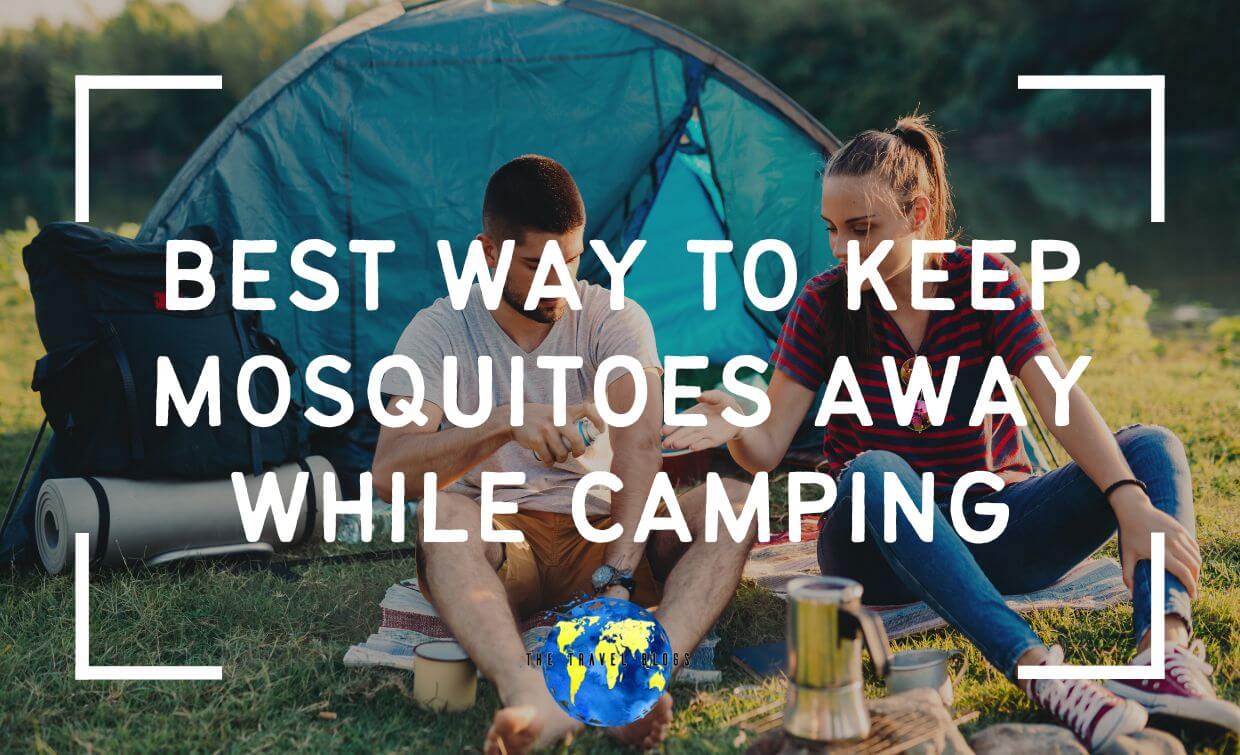Mosquitoes are a nuisance and pesky little creatures who love to bite people. They pose a significant health risk, as they can transmit various diseases. Therefore, it is important to know how to prevent them from biting you. There are several easy and effective ways to do this. You can use them on your camp trip or a vacation with friends.
Mosquito nets, insect repellents, and rubber boots are just a few of the things you should have in hand if you want to stay protected from the pests while enjoying nature. Here are some of the best ways you can use to avoid bugs while camping. Let’s dive in.
You may also enjoy:
Coming your way in this post - click to expand ->
Note – Please know, some of the external links on this page are affiliate links, this means that if you purchase after following one, I make a small commission from the sale at no additional cost to yourself.
Choose a Dry Campsite
Mosquitoes do not care whether you’re wearing a shirt or a skirt; they will land on you regardless. To combat this, camp in dry areas where mosquito activity is lower. If you’re in doubt about a campsite, look for one with good drainage, then realize your surroundings so that you can avoid trouble before it occurs.
The site should have plenty of nearby trees and other covers such as rocks, clumps of trees. To cut a long story short, go for high-raised places. Make sure that there are no stagnant water sources nearby, such as ponds or waterfalls.
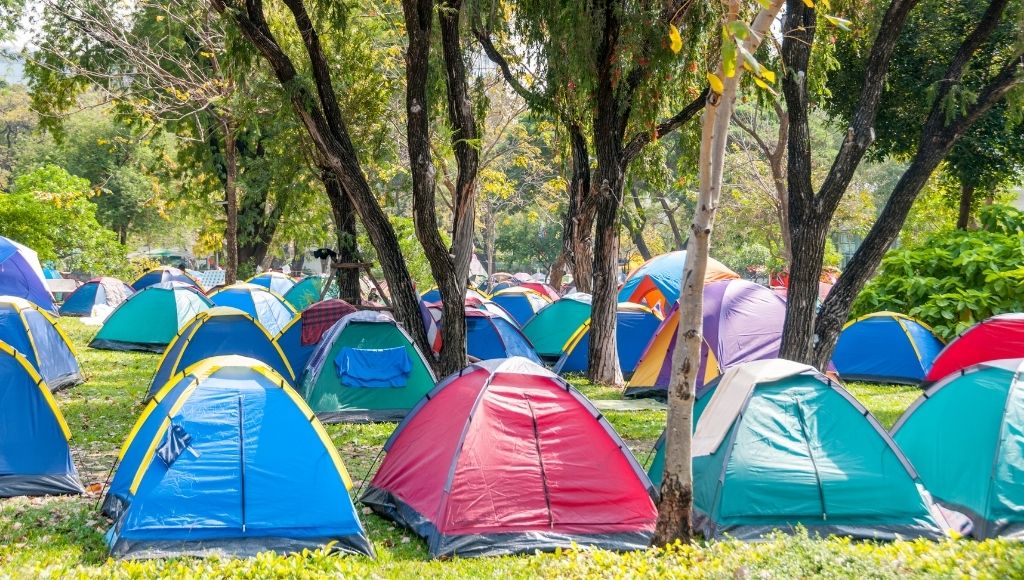
Have the Right Camping Gear
You need to carry the right gear for your camping trip. Ensure your tent is weatherproof, have mosquito nets, insect repellers, enough water, and avoid dark clothing. For instance, a screened area around your tent will help block off light coming from within while making it difficult for nasty bugs to reach you.
For maximum insect protection, invest in a pair of polarized sunglasses that can block out specific frequencies of light while allowing other colors through. Get yourself the best camping cot.
Use of Traditional Bug Sprays
Tropical and subtropical regions around the world use pesticides and creams to control bugs. But, whether acacia leaves sprout from roots or tobacco leaves are shredded from stalks, indigenous peoples and travelers alike have used these techniques for centuries to rid themselves of these pesky intruders.
DEET-based insect repellents are excellent if you want to avoid getting bitten by pesky bugs or anything dangerous while camping. There are many brands of these products available, and they vary in strength and packaging.
When choosing a DEET-based product, look for one with a high concentration of dead-heading oil or fatty substances. These substances prevent the delivery of chemicals into the bloodstream and keep the mosquito from feeding on you while you’re asleep or distracted.
You should, however, opt for waterproof natural mosquito repellent. Such that rains can not easily wash the spray. Always apply the repellents to your clothes when in and out of the camp. If you find yourself among those who don’t like DEET-based camp equipment, consider using non- DEET-based sprays or creams that are safe for your sensitive skin.
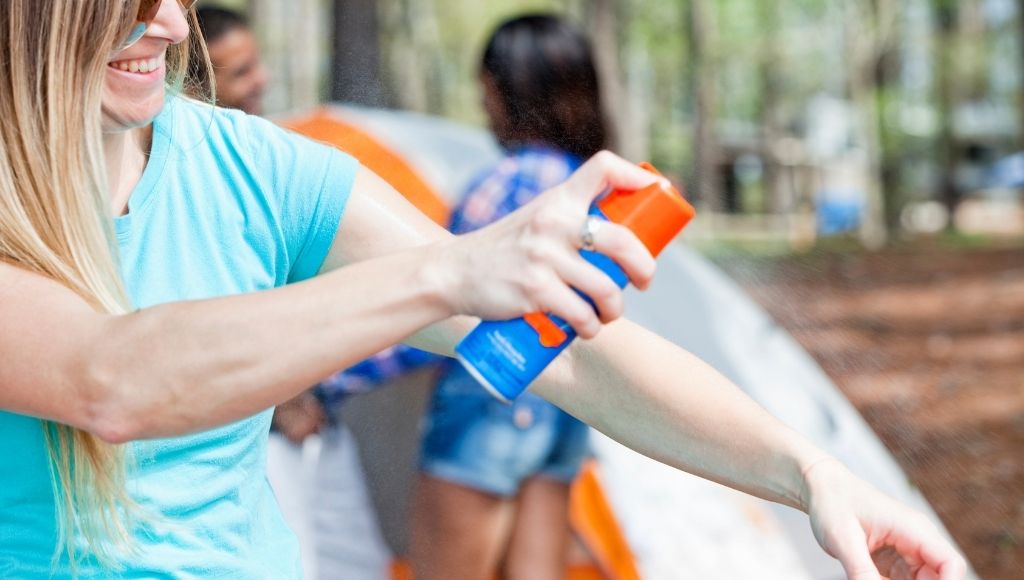
Use Vinegar
There is a natural way (natural repellents) to stop the spread of mosquitoes, and that is by using household products containing vinegar. Vinegar is antibacterial, antifungal, and insect repellent. All you have to do is make sure that the products you use include the right chemical.
Vinegar is very strong smelling and must be kept in a container with a tight lid. However, some campers may find vinegar smells a nuisance, though it is excellent for doing away with annoying insects.
Vinegar is pretty exceptional for killing bugs. While it doesn’t kill everything, it leaves behind a foul smell that can keep bugs away while camping. Luckily, there is an easy way to make your natural bug spray:
- Seal a few teaspoons of dried lavender, sage, mint, rosemary, and thyme in a glass container with 32 ounces of vinegar for two-to-three weeks.
- Give it a good shake every day, then drain the herbs when it’s ready.

Carry Bug-repelling Diffusers
Diffusers come in a variety of colors and are conveniently packaged in a resealable plastic bag. Since finding an excellent product is key to repelling mosquito-borne diseases, always follow the manufacturer’s instructions for use. In addition, always carry a small spray bottle with you when camping or walking around outside in the blistering summer sun. On a related note, keep your hands dry and out of the dirt when working with toxic chemicals.
Natural Mosquito Repellent- Garlic, Onions, and Citrus Fruits
They are preventing mosquito bites while camping is as easy as keeping a few simple items handy. For example, garlic and onions can prepare a repellent applied to exposed skin before entering your camp. Garlic prevents mosquito bite effects by blocking the transmission of malaria parasites through the bloodstream.
Loosely wrapped oranges, citrus peels, and lemons can also be used as natural mosquito repellents. They should be placed in an area where you expect to see these female mosquitoes. e.g., breeding places such as stagnant water around the camp.

Screen Rooms in Tents
An effective way to keep mosquitoes away from your tent is by using a screen room. Screen rooms provide an area in which bugs cannot trespass without being repelled. With a screen room, they are transparent.
You can easily see outside while inside your tent. By creating an area where the mosquitoes cannot enter creates a bug-free zone. You are assured of 100% protection from these tiny insects.
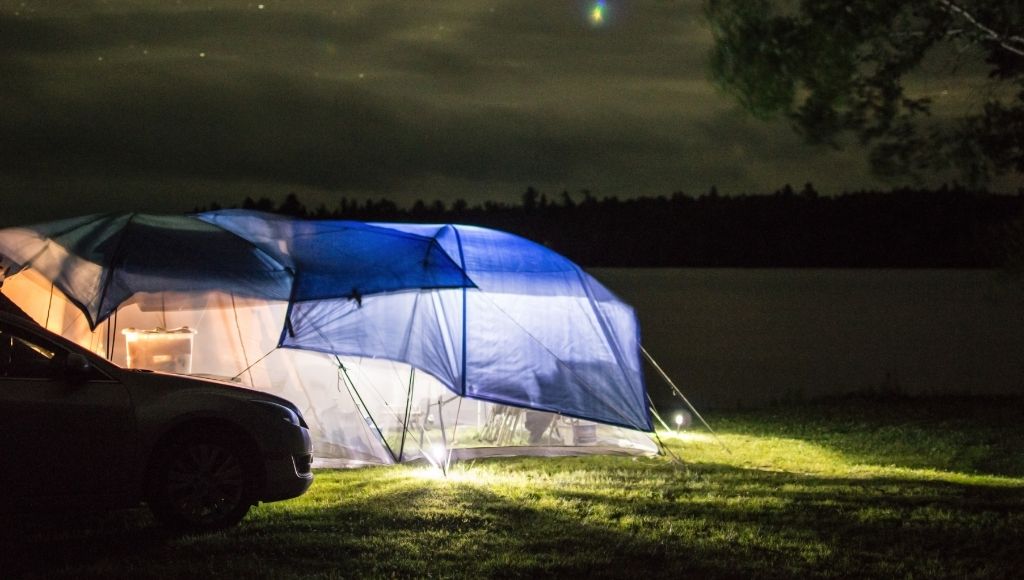
Garlic Capsules
Using garlic capsules can repel mosquitoes on your camping site. It is one of the natural methods to deter mosquitoes in your surrounding. In addition, garlic contains a compound called allicin, which has proven effective in curbing several common cold viruses and the flu caused by bug bites.
The potent smell of the garlic will repel bugs. They will avoid your campsite. Even if the bug bites you, the impact won’t be substantial Garlic capsules will help you feel better at taking medication, which may come with many side effects.
Your Tent Should Be Zip Closed
You want your tent to block any movement of insects in and out. To minimize the risk of attack by mosquitoes and other insects. To prevent mosquito bites, don’t place your tent in trees or on top of tall grasses.
Creating a mosquito-free zone within your campsite will keep other bugs away from you with plenty of ventilation. Meanwhile, creating a tight seal around the outside of your tent (to prevent evaporation) will help keep the outside air clean. To determine where to draw the line on where bugs are acceptable, experiment with different materials used to repair tents, fabrics used on canvas, etc.
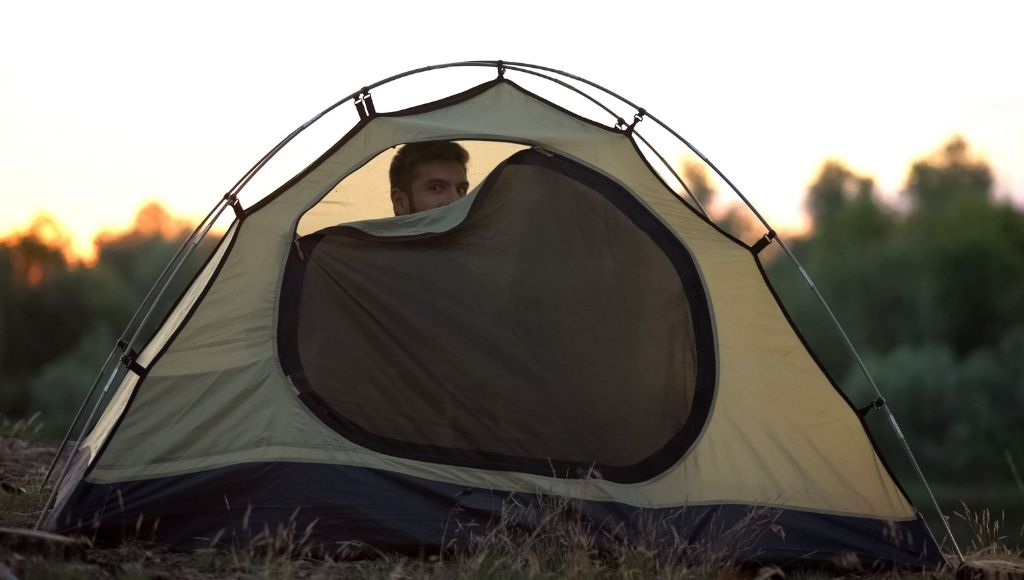
Light Campfires
Campfires are one of the best ways of repelling mosquitoes from your campsite. But which kind of fire do you need? The right type of campfire creates a big difference in how efficient your next camping trip will be. So before going on any camping trip, you need to decide on a fire that will effectively prevent mosquito bites.
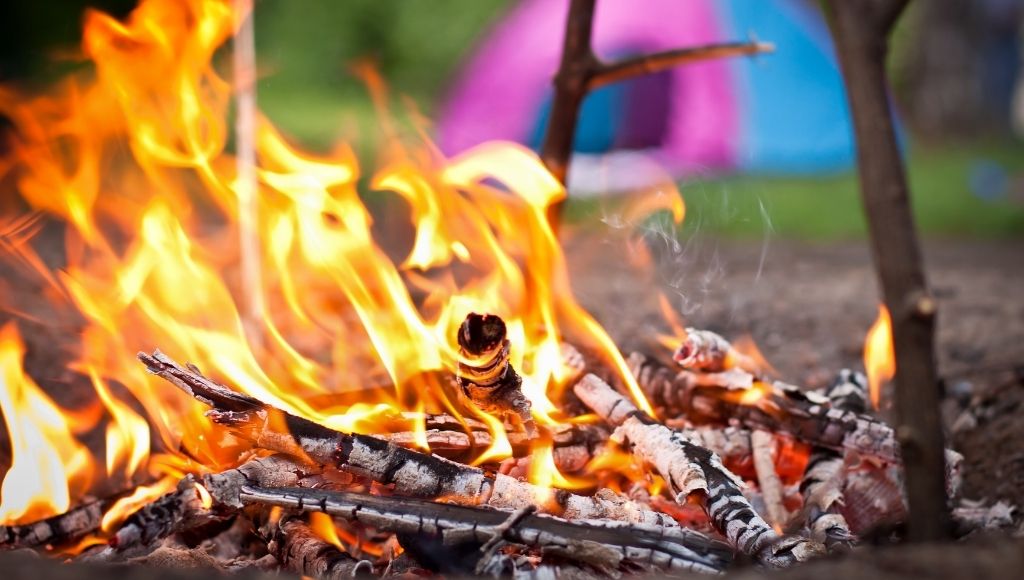
Stay Hydrated
Hydration is essential for any outdoor activity. But it’s more crucial when you’re undertaking a hike or camping trip. However, if you’re not paying attention to how much water you’re taking in, it can be easy for insects to take advantage of you. The sweaty and salty nature of human bodies easily attracts these bugs.
You should also be careful with the water you drink. Some insects may find their way to the water you drink. While it might seem like a minor detail, letting insects into your food or drinking can be enough to make you sick and increase your risk of illness when camping.
At the same, in wilderness adventures, when you fail to hydrate, you will be sweaty. Primarily because of the blistering summer sun in the wilderness. The sweat now will act as a mosquito magnet.
Your Scent Should Not Attract Mosquitoes
In nature, some scents attract certain insects and also deter them. For instance, mosquitoes are naturally attracted to some people because of their genetic composition. If you are in this category by any chance, don’t worsen the situation by using scent-oriented detergents in your camps.
You should avoid alcoholic substances as they increase your metabolic rate, attracting pesky insects. Always carry a small bag with you so that you can throw away excess scented clothing as soon as you get into a spot where there might be insects, especially around trash containers or around standing water.
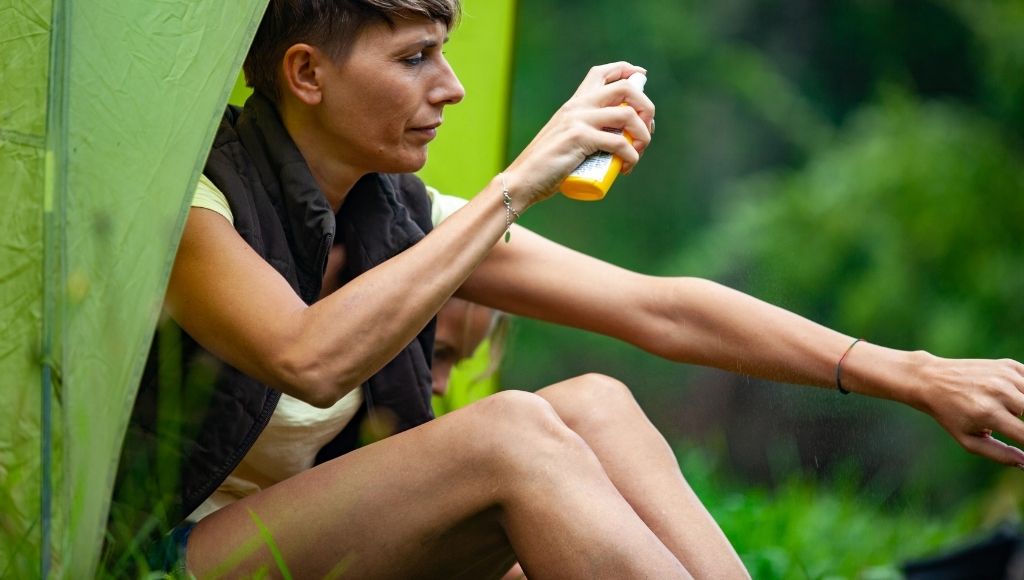
Use of Mosquito Nets
Camping is a great way to enjoy nature in peace. But, sometimes mosquitos are just not going to give up their lunch until you’re dead and buried in a pile of leaves. That’s where mosquito netting found at most campsites can come in handy.
Made of material such as nylon spun to minimize bulk and provide maximum durability, mosquito netting can keep away these bloodsucking insects while you sleep.
Use Bug Spray
Bug Spray kills most bugs in its path. Depending on the strength of the chemical used, it can either hinder their ability to spread disease or make them less aggressive. One of the most obvious solutions to your bug problem is to repel them away from the area and your skin by using bug spray.
You can use bug spray on your tent, around the site if they worsen, and by spraying it on your skin and clothes. Unfortunately, this will only work if you have a good-sized area sprayed. So, to get away from these pesky little buggers, it’s best to plan and get some ready-made mosquito repellent.
Check out: How To Clean A Tent With Mold?
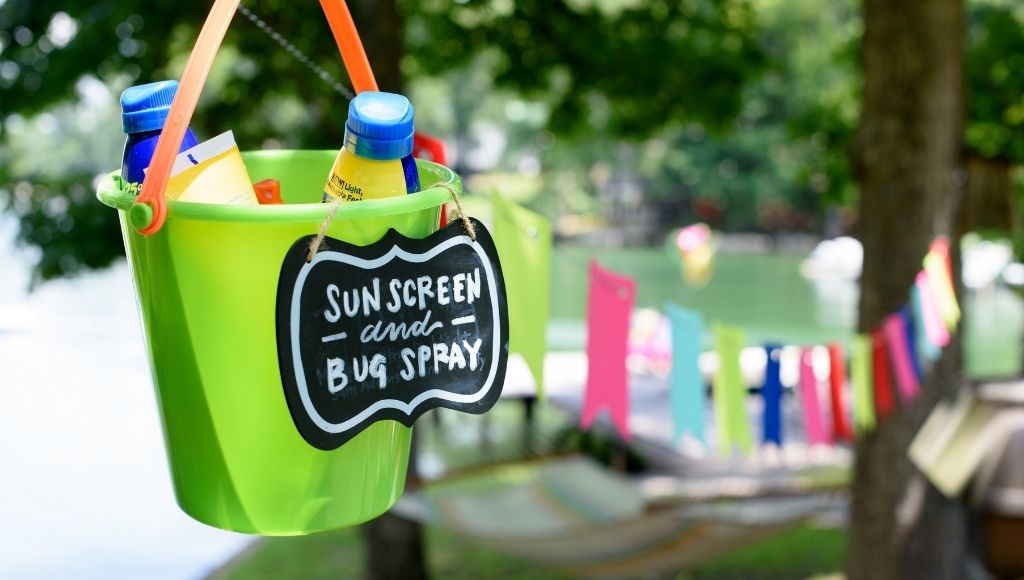
Wearing Long-sleeve Shirts, Pants, or Protective Clothing
Sometimes the best way to avoid being bitten by a mosquito is to wear long sleeves and pants when going outdoors. This flies in the face of common sense, however. Always wear cover clothes as you tour the surroundings around your camp. For maximum protection, do this also inside your base.
If you want to avoid getting bitten without actually giving up your bathing suit or going to the beach, try walking around with your shirt and pants rolled up — not just around your ankles. Mosquito bites can range from annoying to potentially severe depending on the size and intensity of the infestation.
Wrapping Up
If you plan on camping and want to minimize your exposure risk, bring something that can keep you comfortable and protected. Natural bug repellents work best in this. They conserve the environment while at the same protecting you from malaria and other bug-related diseases.
Hope you liked the above-given methods, which you can use to keep mosquitoes away while camping. Do you have any of the methods that work best for you? Do share it with us.
You may also like:
